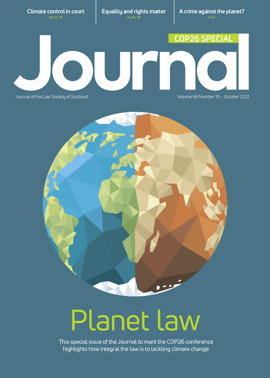Immigration: Asylum from the Taliban?
The grave deterioration in the security and humanitarian situation in Afghanistan has been well documented in recent weeks. One might think that the installation of a new Taliban regime would have resulted in an increased emphasis on protection of Afghan asylum seekers. Unfortunately, the Home Office’s position has been, at best, unclear.
Prior to these developments, the baseline position regarding the return of failed Afghan asylum seekers was relatively clear from the Upper Tribunal’s country guidance in AS (Safety of Kabul) Afghanistan CG [2020] UKUT 00130 (IAC). That set out that it would not, in general, be unreasonable for a single adult male in good health to relocate to Kabul, irrespective of whether he had a support network.
In practice, the Home Office’s position has often been to maintain that the majority of Afghan asylum seekers, save for lone women and children, can safely relocate to Kabul. Therefore, assessing whether relocation to Kabul is reasonable is the crux of many Afghan appeals, the Home Office often having conceded that an individual cannot return to their area of origin, either by reason of risk on return or risk when attempting to travel back due to road insecurity.
Tribunal on the Taliban
What the impact of the Taliban’s seizure of control over Kabul will be on the Upper Tribunal’s guidance remains to be seen. However, the evidence does, on the face of it, appear to constitute very strong grounds for departing from that guidance (the test in asylum appeals which must be met before country guidance does not require to be followed). The basis for that suggestion is contained within the judgment itself, as the tribunal relied on the fact that Kabul was not, at that time, under Taliban control and there being “no real risk that Kabul will fall under the control of anti-government elements” (para 213).
Of course, the tribunal could not have predicted how quickly the Afghan Government would collapse, albeit it has always been careful to acknowledge that the situation is extremely fluid and required to be kept under frequent review. Nonetheless, this passage does indicate that the Upper Tribunal might have reached a different decision had the Taliban been in control of Kabul or had the tribunal been aware of the events which would shortly unfold.
This proposition equally finds support in the Upper Tribunal’s previous country guidance relating to Afghanistan. In AK (Article 15(c)) Afghanistan CG [2012] UKUT 163 (IAC), which was affirmed in AS as still applicable in relation to a number of issues, the Upper Tribunal addressed the issue of relocation to an area which was then under the control of the Taliban. It held that, for most civilians, excluding those with a history of family support for the Taliban, Taliban control of the proposed area of relocation was a factor which might make relocation unreasonable.
The position now?
It has been widely reported that the Taliban now holds itself out to be a reformed organisation with respect for the human rights of all living under its governance. Even if that claim were to be taken at face value for the time being, the situation in Kabul and Afghanistan can hardly be said to be durable.
In HH (Somalia) v Secretary of State for the Home Department [2010] EWCA Civ 426, Sedley LJ held that, in assessing the viability of an area as a potential place of relocation, it had to be considered whether the area was one which an individual could be expected to “go to and remain in” (para 83). In reality, no one can truly know how the Taliban is going to act over the next period. The only indicator of its future policies comes from its past actions, in which it is not disputed that the human rights of all citizens were violently repressed.
The weight of evidence supports that no individual should be returned to Afghanistan, and in particular Kabul, as things currently stand. It has now long been reported by human rights organisations that Afghanistan has surpassed Syria as the most dangerous country in the world. Recent events have led to an increase in insurgent activity by groups such as ISIS-K, as well as in the perpetration of large-scale indiscriminate attacks. Kabul is reported to be bursting at the seams due to the influx of displaced people from other areas of Afghanistan, and humanitarian conditions continue to deteriorate, even more so in light of the impact of COVID-19.
The Home Office’s recent withdrawal of all but one policy note in relation to Afghanistan is recognition of the significant changes which have taken place; however the continued delay in establishing a clear policy on how Afghan asylum claims should be processed stands in clear contradiction to their, admittedly admirable, policy of resettling vulnerable Afghans. Clarity on the Home Office’s position is required urgently, as the current practice of requesting adjournment of hearings with no clear timescale is unlikely to be entertained by the courts.
Regulars
Perspectives
Features
Briefings
- Criminal court: ID from CCTV
- Criminal court: Justiciary Office briefing
- Licensing: Passport to confusion
- Planning: COVID and NPFD update
- Insolvency: Winding up easier, but hurdles remain
- Tax: Government continues to bring in new taxes
- Immigration: Asylum from the Taliban?
- OPG: Update
- Property: Common parts – a welcome clarification
- In-house: Lawyer with natural energy







